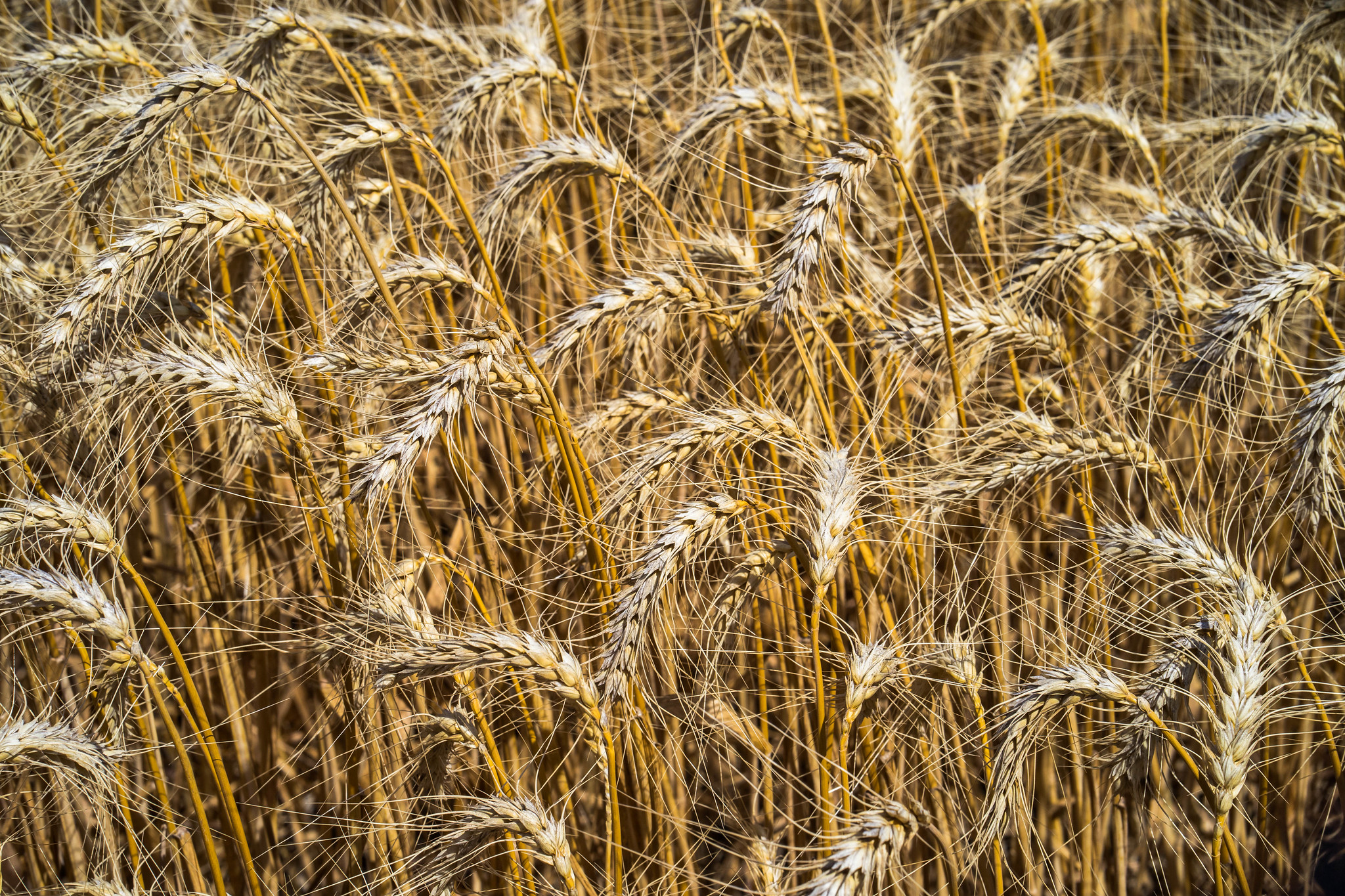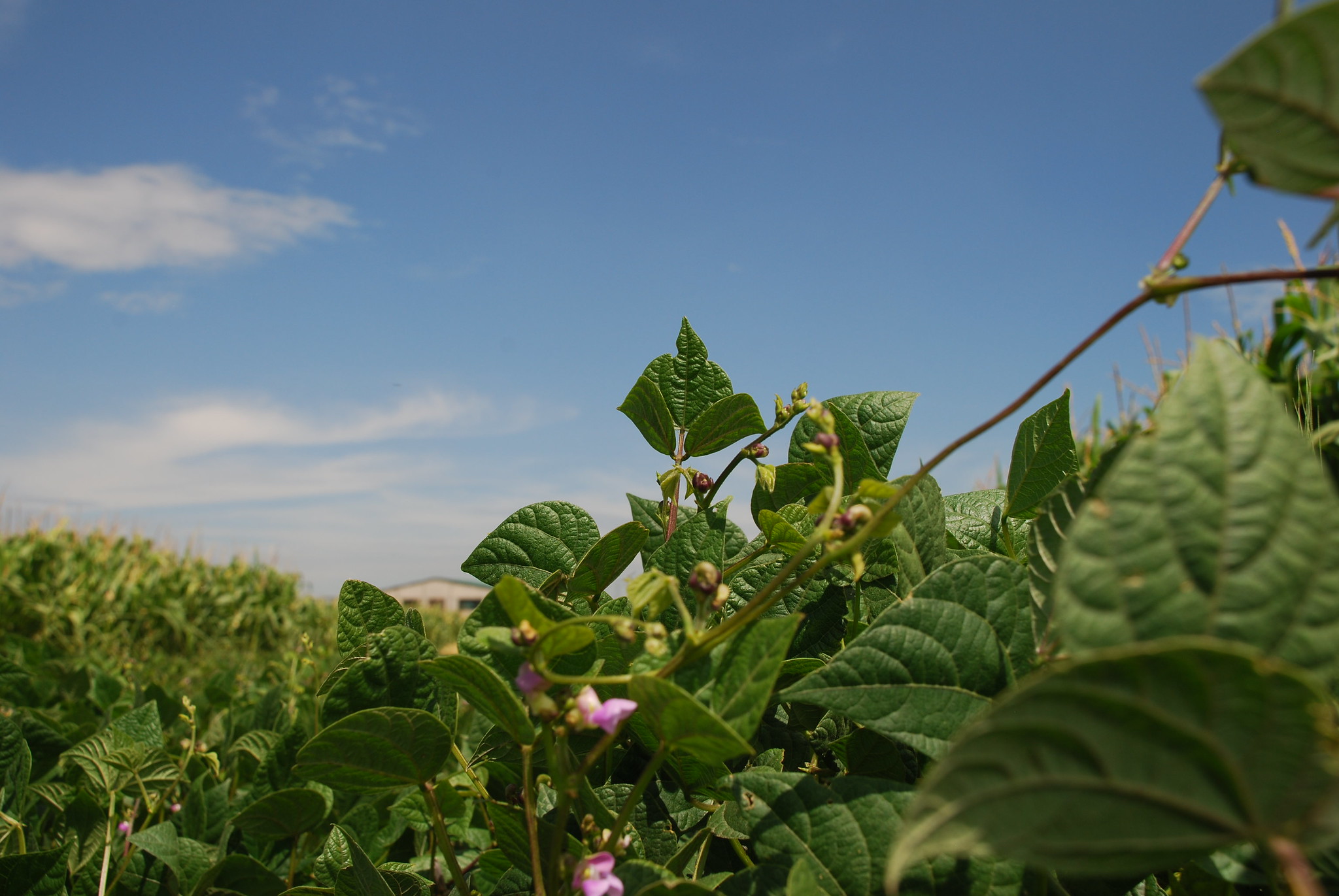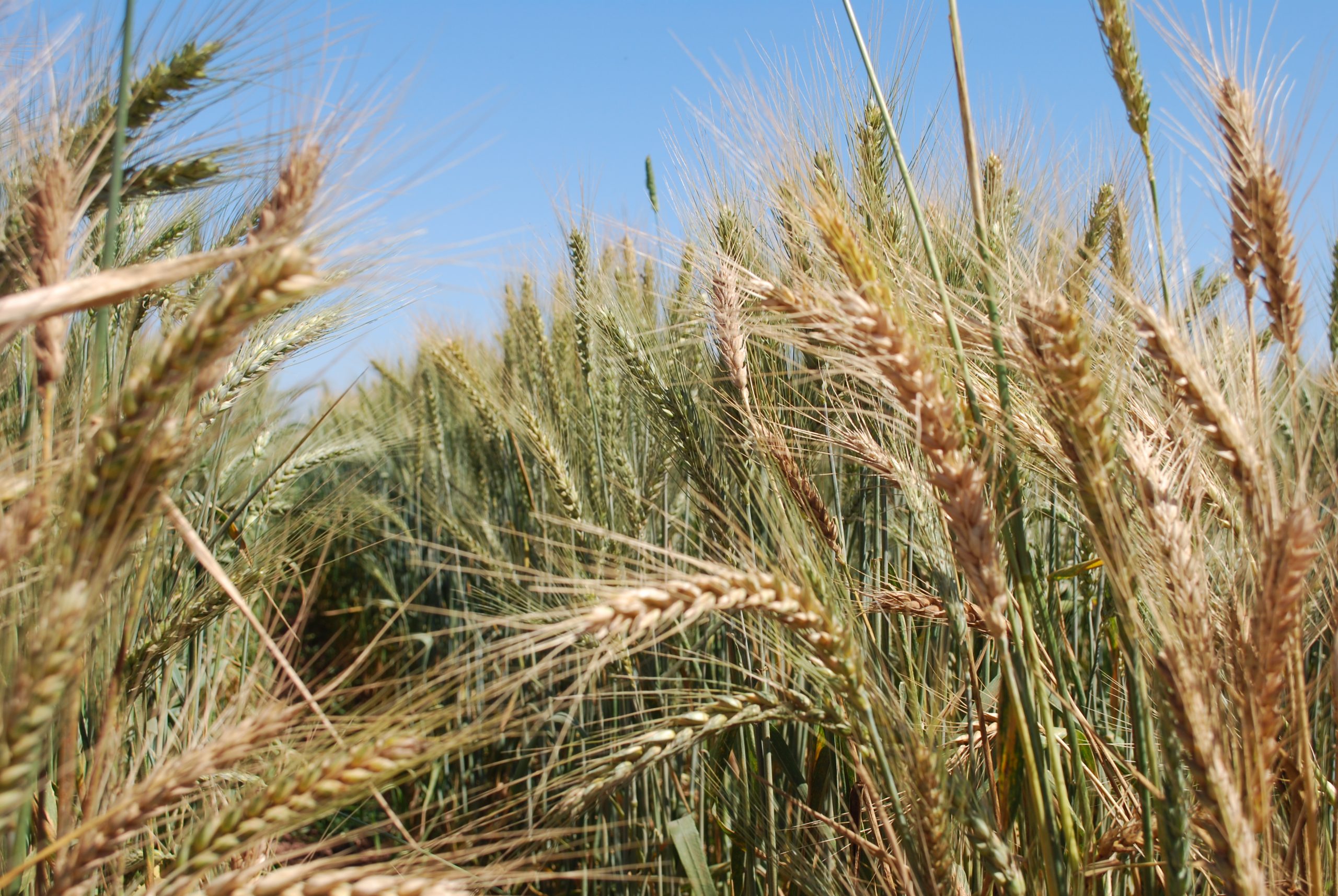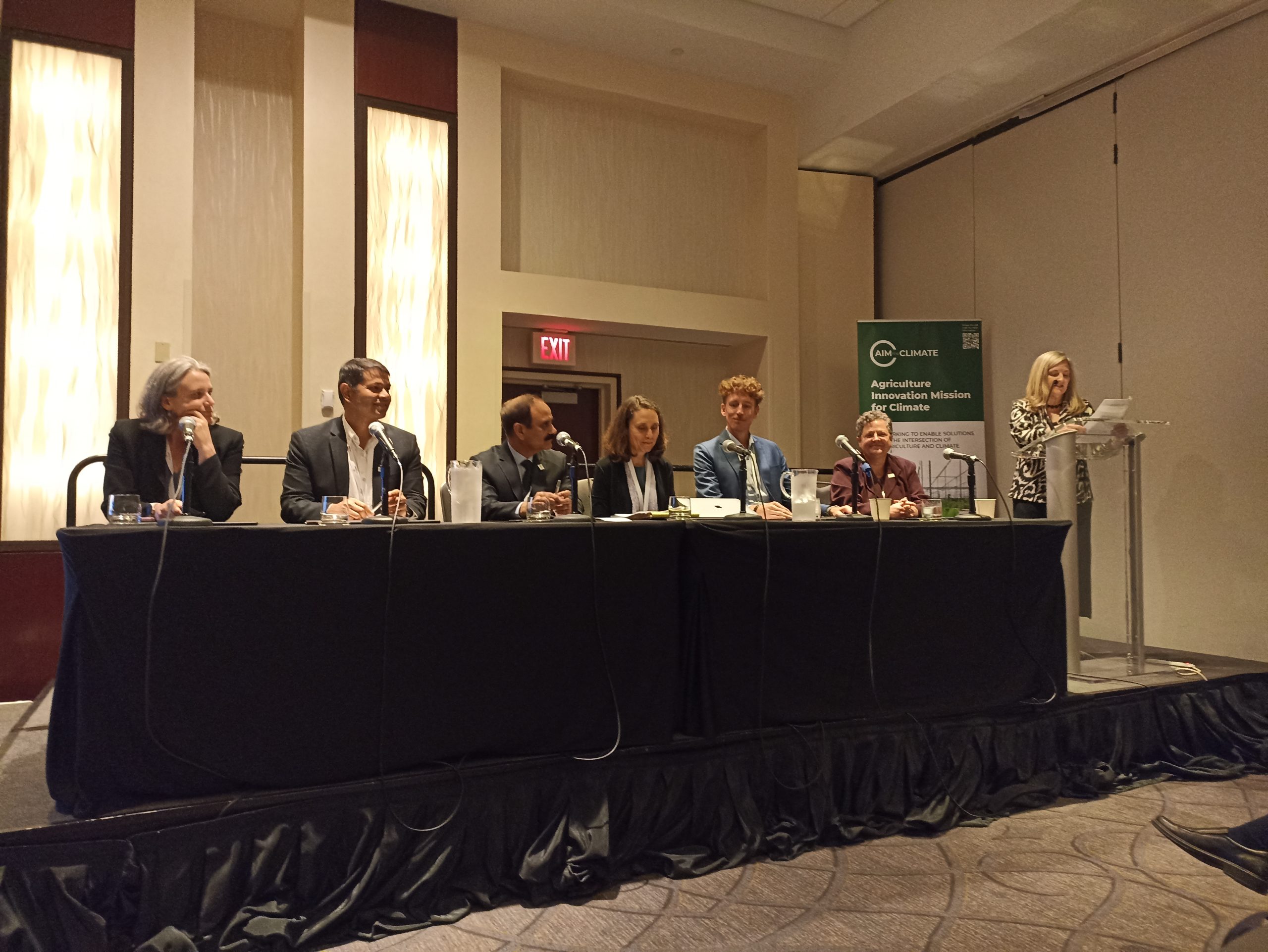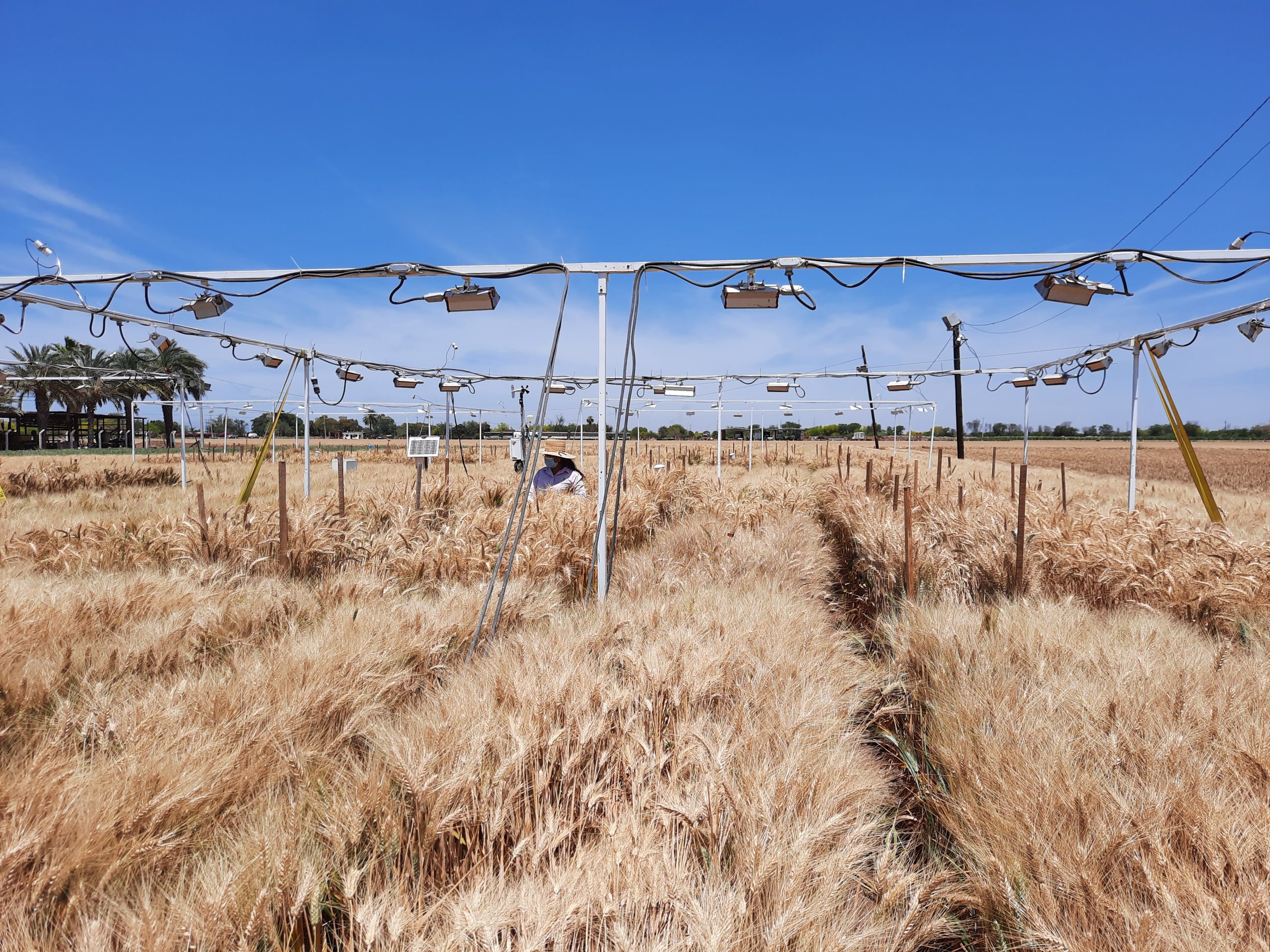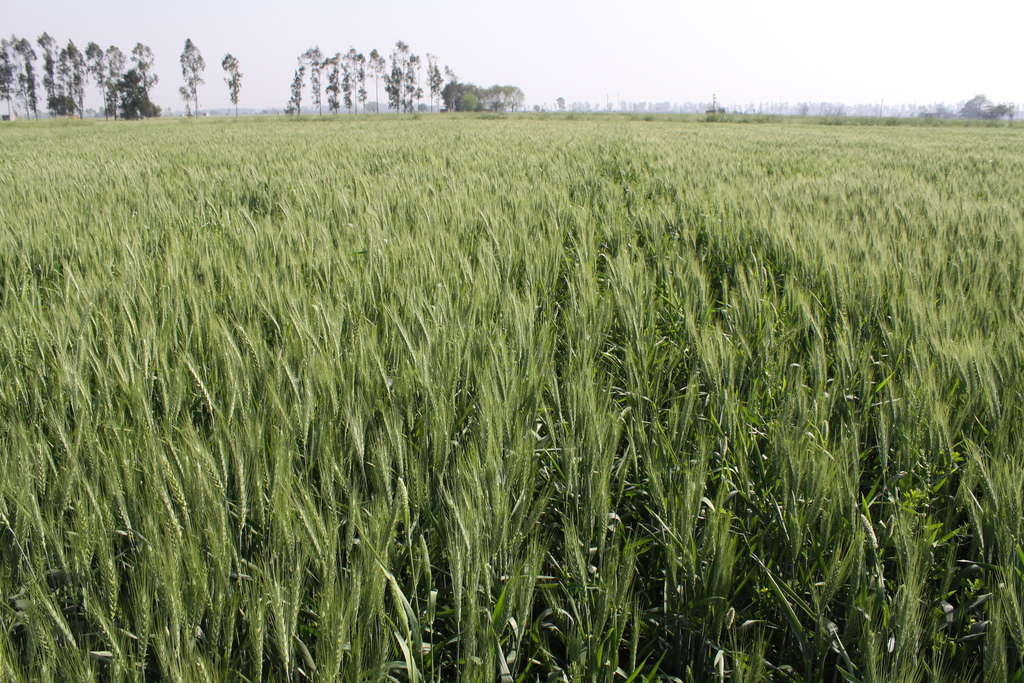Climate adaptation and mitigation
Climate change threatens to reduce global crop production, and poor people in tropical environments will be hit the hardest. More than 90% of CIMMYT’s work relates to climate change, helping farmers adapt to shocks while producing more food, and reduce emissions where possible. Innovations include new maize and wheat varieties that withstand drought, heat and pests; conservation agriculture; farming methods that save water and reduce the need for fertilizer; climate information services; and index-based insurance for farmers whose crops are damaged by bad weather. CIMMYT is an important contributor to the CGIAR Research Program on Climate Change, Agriculture and Food Security.
Hot, dry, windy events on the rise in Kansas wheat fields
 Climate adaptation and mitigation
Climate adaptation and mitigation
Source: Succesful Farming (11 Jul 2023)
To dive into the challenges posed by climate change, researchers at the International Maize and Wheat Improvement Center, in Sonora, Mexico, are working to develop a range of wheat that can withstand extreme and unpredictable weather conditions.
Climate change to reduce Africa, South Asia wheat output
 Climate adaptation and mitigation
Climate adaptation and mitigation
Source: World-Grain.com (26 Jun 2023)
DSSAT wheat models showcase the impact of temperature, heat stress, water balance and drought stress in large wheat yield reductions due to climate change for Africa and South Asia.
Pakistan’s wheat yield may decline 16pc due to climate change
 Capacity development
Capacity development
Source: Dawn (25 Jun 2023)
The wheat simulation models have been widely used to study diverse cropping systems, as growing conditions and the impact of climate change on wheat vary across the globe. Simulations for South Asian countries suggested a different magnitude of climate change impacts, particularly due to warmer temperatures.
Wheat output in Africa and South Asia will suffer severely from climate change by 2050, modelling study shows
 Climate adaptation and mitigation
Climate adaptation and mitigation
Crop simulation models predict that climate change will lower global wheat production by 2050 in Africa and South Asia, where food security is already threatened.
Food security is a national security issue everywhere
 Climate adaptation and mitigation
Climate adaptation and mitigation
Source: Global Bar Magazine (13 Jun 2023)
Lindiwe Majele Sibanda, CGIAR Systems Board chair, lays out strategies that build on CGIAR’s investments in rural economies for more diversified and resilient food systems.
Reviving Nepal’s agriculture
 Climate adaptation and mitigation
Climate adaptation and mitigation
Source: The Kathmandu Post (31 May 2023)
Mixed farming can boost food security and climate resilience. IWMI and CIMMYT are leading pilot efforts in Nepal to promote sustainable intensification of mixed farming systems (SIMFS).
Scientists breed new cereals
 Climate adaptation and mitigation
Climate adaptation and mitigation
Source: Daily Monitor Online (29 May 2023)
CIMMYT and NaSARRI have partnered to strengthen seed systems for smallholder farmers of millet, sorghum, and groundnuts.
Chinese, Pakistani scientists collaborate in wheat molecular breeding
 Capacity development
Capacity development
Source: Technology Times (24 May 2023)
CIMMYT, Pakistan’s National Agriculture Research Center, and China’s Ministry of Science and Technology have collaborated in a project to increase the capacity of breeders and technical staff to develop new high-yielding and disease-resistant wheat varieties.
Collaborative wheat revolution tackles climate challenges
 Climate adaptation and mitigation
Climate adaptation and mitigation
Source: Technology Times (18 May 2023)
Rising temperatures, droughts, and extreme weather events affect crop yield, quality, and nutritional value. To dive into the challenges posed by climate change, scientists and farmers are collaborating to create a “Wheat Revolution.”
CIMMYT at AIM for Climate Summit
 Climate adaptation and mitigation
Climate adaptation and mitigation
CIMMYT participates in Climate Summit with an eye towards accelerating innovations.
CIMMYT at the AIM for Climate Summit
 Climate adaptation and mitigation
Climate adaptation and mitigation
Smart smallholder fertilizer management practices to address food security and climate change.
How to address the food insecurity driving forced migration
 Climate adaptation and mitigation
Climate adaptation and mitigation
Source: Mexico Business News (9 May 2023)
Bram Govaerts, CIMMYT Director General, addresses the root causes of forced migrations with five adaptation measures that public and private actors can adopt to strengthen agri-food systems and protect vulnerable regions from climate shocks.
Hot, dry climates call for resilient, high-performing wheat varieties
 Climate adaptation and mitigation
Climate adaptation and mitigation
New breeding science can fortify wheat against the onslaught of hotter weather, increasing droughts, and evolving and spreading pests and diseases.
LIPS-ZIM assists farmers to adopt productive and resilient livestock systems
 Climate adaptation and mitigation
Climate adaptation and mitigation
Source: Sunday News (23 Apr 2023)
With intensifying climate change, farmers in Matabeleland, Zimbabwe adopt innovative methods for resilient and productive livestock as part of the Livestock Production Systems in Zimbabwe (LIPS-ZIM) project.
Global science partnership promotes climate-smart pathways to address food security and climate crisis
 Climate adaptation and mitigation
Climate adaptation and mitigation
As rising temperatures and water scarcities threaten food production and affecting global food security and livelihoods since last century, leading research organizations have joined efforts around solutions that can also benefit climate-threatened, staple food farming in Africa, Asia, and Latin America and help reduce greenhouse gas emissions from agriculture.



